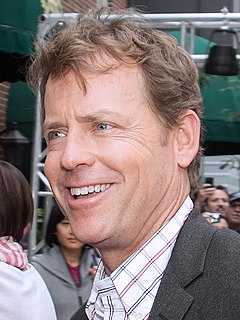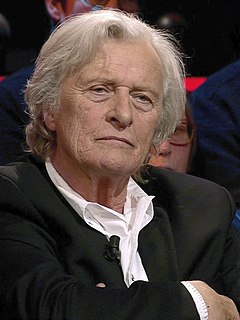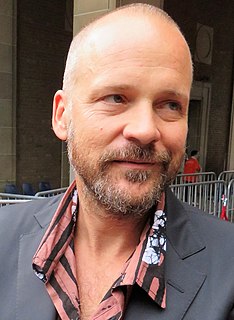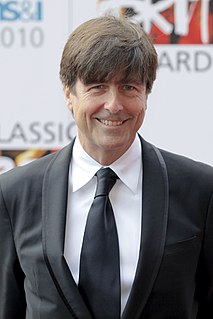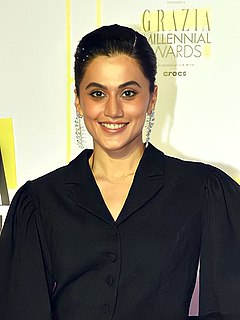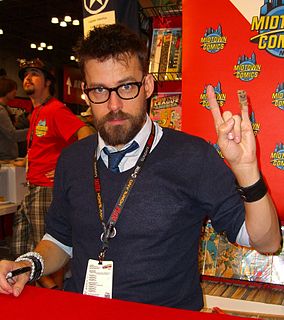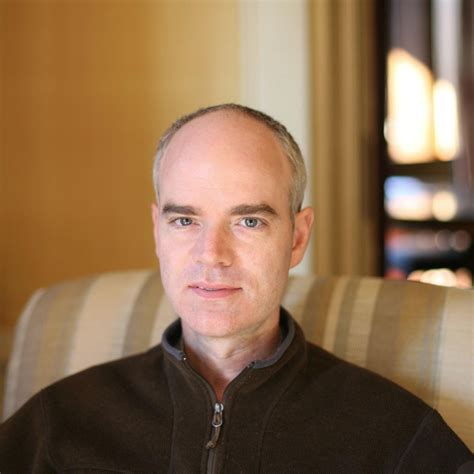A Quote by Greg Kinnear
When you have a director who has work you can identify from the past, it gives you some reference point as to what their interpretation of the story might be, and how that might jibe, right or wrong, with how you see it. But with a first-time director, you don't really know where you're at.
Related Quotes
I think one third of my work is with first-time directors because I think I should, you know? Really, the difference between a first-time director and a second- or third-time director - I mean there's no director who makes enough movies anyway - but if they're talented, they have it. And there is no movie that is perfect.
I kind of joke with myself that you shouldn't be able to be a creative producer if you weren't a first AD. Because it is such fantastic training for really understanding what everyone does, and how the movie actually gets made. You have to know if you're the first you're kind of the set general, you're at the director's right hand, you know everything about how a director puts a movie together, you know everything about how a movie gets made.
Theater is about interpretation and what an actor and what a director brings to a piece too. I'm open to it every time I work with a director and a group of actors. I have to be open to that interpretation. I'm not one of those hysterical playwrights that come and say, "This is not what I intended to do." It's one rendition of the piece.
It [the scene] can be something given to you and you go, "Ah this is a good idea, I can work with this." Sometimes it cuts right across your instinct and that's when I might resist. Even if the director might be insistent, I think it's very important to say, "Look, I'm not feeling this. I'll try to make it work but I got to let you know."
Independent means one thing to me: It means that regardless of the source of financing, the director's voice is extremely present. It's such a pretentious term, but it's auteurist cinema. Director-driven, personal, auteurist... Whatever word you want. It's where you feel the director, not a machine, at work. It doesn't matter where the money comes from. It matters how much freedom the director has to work with his or her team. That's how I personally define independent movies.
I don't really think I have the personality. I am not very external. I don't want to dance on the table and do impressions. So I think that the way I approach it is really loving story. That's my first love - the words. The words and the story and how to create images. I guess I come at that as a director. I think that's much more in my personality to be a director, so that's kind of informed my acting.
You can always hear a director saying, 'Well I don't really know what this piece is saying, so therefore, I reject it.' There are any number of things you can anticipate going wrong, and sometimes they go right. But I think the things you like most are the things that get rejected first. That's just how things work.
You're in a movie, so you have to think about how something plays. It's not like you're thinking about how an audience is going to react. You're trying to present the story. You're trying to illuminate the lives of these people in the story. So I'm thinking about how my behavior as this character best illuminates what's going on with them in this moment in time. I always say it's sort of the director's job. People think that the directors direct actors. No. Really, what the director's doing is directing the audience's eye through the film.
I am telling you now: I might be young, but I am good. I work hard, and I'm a good person. I know what's right. I know what's wrong. And if you give me this chance-- if you just give me one shot to show you how good I can be, how hard I work, how much I believe in doing the right thing -- I won't let you down. I promise.
